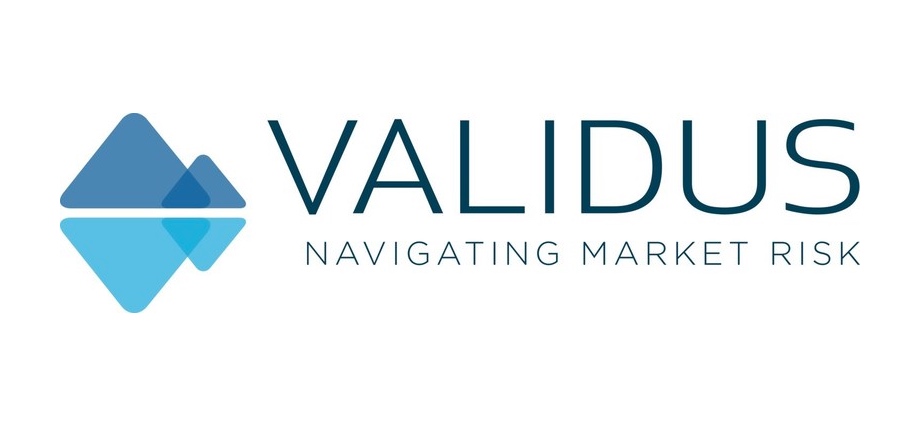Published
- 06:00 am

KX, a worldwide leader in real-time streaming analytics, has today announced enhancements to KX Flow, its white-label foreign exchange trading platform. The enhancements help financial institutions better manage market risk, with a new automated capability to optimise position and hedging strategies. Additional pricing and connectivity improvements further optimize pricing streams and enhance flexibility.
New auto hedging capabilities extend hedging logic based on trade and position size, as well as on realised, unrealised and total P&L per book. Risk can now be organized into multiple books, each with their own positions and hedging rules. These rules can be configured in real-time using a range of order types and smart order routing for optimized execution and profitability.
“With the new KX Flow auto hedging capabilities, financial institutions can better control their risk through comprehensive rules-based position management tools that allow them to dynamically analyse and update pricing and risk profiles in real-time,” said Rich Kiel, Global Head of FX Solutions, KX. “Aligning this with KX’s market leading pre and post trade analytics provides real-time, intelligent insights enabling our clients to achieve better execution while reducing risk and optimising their profitability.”
Today’s announcement also includes support for Rolling Books, Settled Books, new order types such as TWAP, Peg and Stop orders and a function to close all workflows at any point in time. Additional pricing and connectivity improvements include:
- New tier spot pricing allows for different mark-ups depending on which multi-bank portal (e.g. 360T, FXall and BBG FXGo) is utilized, while support for Request for Stream (RFS) and Executable Streaming Pricing (ESP) optimizes transactions for these trading styles. Additionally, taker markup enhancements add flexibility to how financial institutions can electronically add margin to client pricing requests.
- Increased 3rd party connectivity gives financial institutions access to a range of Multi Bank Platforms (MBPs) such as LSEG FXAll, Bloomberg FXGO and Deutsche Börse 360T. No matter which channels banks need to reach their clients through in the increasingly fragmented FX marketplace, KX Flow provides a one-stop-shop to enable client connectivity via MBP’s, direct API, or white-label HTML5 GUI, across banks, non-bank LPs and leading ECNs.
For more information on KX Flow and its recent enhancements, please visit: https://bit.ly/3qBTeCt
Related News
- 05:00 am

Cryptocurrencies remain extremely volatile. Bitcoin is consistently on track for topping their biggest monthly increase and decline. It faced one of their record-highs of 37.5% decline just this May 2021, and frequently sees drops like 37% drop seen in November 2018 and 40% slide in September 2011. Most recently, the price of bitcoin climbed to $34,805.19 Monday 28th June 2021, up 8% from where it stood at 5 p.m. ET Friday, after Mexican billionaire Ricardo Salinas Pliego encouraged its purchase. This volatility serves as a double-edged sword, both as an exciting asset choice for some investors and apprehension for others, preventing widespread adoption.
One contributing factor to volatility is that the crypto markets have an abundance of whales – a term given to someone who holds a significant amount of a particular asset; someone who holds a minimum of 1,000 Bitcoin is considered to be a whale. The sheer size of their holdings means that, when they decide to sell, the market is suddenly flooded with this asset, causing big price movements.
These powerful investors exist across all asset classes, but cryptocurrencies are particularly vulnerable because there are more whales, but much smaller volumes and less liquidity across a fragmented sea of exchanges. Without sufficient liquidity, these whales are trapped in a proverbial swimming pool, destined to send huge waves through the market as soon as they move. Because each exchange is segregated into their small swimming pools of liquidity, they are incredibly susceptible to whale movements.
For that reason, we need to solve the liquidity problem by joining all these segregated small swimming pools into one big ocean. The trading technology of the crypto market has not yet caught up to the maturity and stability of forex, which employs OTC trading, which is how it minimizes the effects of large buy and sell orders that can drastically move the market. If the crypto market integrates that, this can dramatically improve crypto exchange liquidity and stabilise pricing as a result. It’s time to deepen the liquidity pool.
The influence of whales
Cryptocurrency assets are still fundamentally very concentrated. The sudden growth of Bitcoin means that a large portion of the market is owned by a small majority of traders who were fortunate enough to buy lots of Bitcoin when the price was low. Currently, around 40% of Bitcoin is held in around 2,500 accounts.
The same is true of altcoins. For example, it was revealed in February this year that one person holds 28% of Dogecoin, which has soared by almost 1,400% since the start of the year. An individual in possession of that large a proportion of the market has a huge effect on the price.
And the effects of these whales are visible. When whales are selling, the prices of cryptocurrencies are on a downward spiral. On April 18th, for example, one trader moved 58,814 BTC – worth more than $3.3 billion at the time – from Binance to a private wallet at the same time as the prices slid to a low of $51,541 per unit.
Shortly after, on April 20th, there was a significant amount of whale movement fluctuating the price and leading analysts at Whalemap to argue there is a threshold, at around $55,000, whereby whales often stop adding to their positions and move their assets to wallets.[ASP1]
While whales are clearly affecting the price of Bitcoin, their influence is greater among altcoins, which have lower market caps and are less liquid. Not long ago, the price of Ethereum plummeted by more than 50% on the Kraken Exchange, plunging from $1,628 to $700 within the space of minutes.
The CEO of Kraken attributed this to single sell, saying "it could be that a single whale just decided to dump his life savings." For Ethereum to drop $1000 dollars in three minutes is extraordinary and it proves that even the biggest exchanges with large volumes can be rocked by big whale movements.
Shrinking liquidity
Considering price swings are compounded by fragmented liquidity, the market must pay attention to the fact that liquidity is getting worse, not better. The amount of Bitcoin on exchanges isdown 20% over the last 12 months. Slowly but surely, liquidity is drying up and the pool is getting smaller.
The bullish cryptocurrency market means people are holding the asset, simply watching the price tick up. Evidence suggests that there is a growing number of whales, with the number of individual holders of over 1,000 Bitcoin at an all-time high of 2,334. So, despite growing popularity, there is still only a very limited amount and diminishing amount of cryptos changing hands.
Contributing to these problems, big investors are entering the crypto market in swathes. Institutional investors, hedge funds, high-net worth individuals, and companies – most famously Tesla – are all looking to hold and trade crypto assets. And with more buying power, it is likely to increase order sizes and add to the influence of whales.
We cannot prevent these big players from influencing crypto trading, but solutions for the underlying lack of liquidity that exacerbates price swings exists.
Unifying the pool
To combat whale-induced price swings, the market is slowly adopting tactics from other asset classes. For example, many OTC brokers are targeting crypto whales to trade digital currencies over the counter because they can access more liquidity than exchanges.
However, for a lasting solution that can cushion large orders and prevent sudden and drastic price changes, exchanges should turn to trading technology that has been mastered in other markets. For example, the FX markets have long provided Straight-Through-Processing capabilities on a global liquidity network, where orders are aggregated and processed using Smart Order Routing. This infrastructure allows global price discovery, where the best bid and ask prices are presented to all market participants, regardless of trading avenue.
Effectively, it allows exchanges to leverage the liquidity of other exchanges, including from the biggest in the industry. Using this model, exchanges can consistently provide traders the best prices and absorb the impact of big whale splashes by drawing on liquidity from the wider market. The multiple individual pools join to become an ocean.
Only once these issues are addressed will cryptocurrencies be free of the volatility that comes with so many big fish in a market lacking depth.
Related News
- 09:00 am

Aliaswire, a provider of digital payment and credit solutions for businesses and financial institutions, today announced $6 million in new funding. The round, led by Stage 1 Ventures, is the company’s first institutional investment in its 13-year history.
As part of the funding, Stage 1 Ventures Operating Partner Scott Carmel will join the Aliaswire board of directors. “Aliaswire has built a profitable, high-growth business with an extensive portfolio of innovative products, patents, and intellectual property,” said Carmel. “We see a strong team and tremendous opportunity to accelerate the pace of innovation to open up new markets and revenue streams.”
The company has also made two additions to its leadership team. Fintech veteran Chris Gardner has joined Aliaswire’s board as an individual member. Gardner has spent the better part of three decades as an entrepreneur, founder, and product and marketing executive at Boston-area venture-backed companies including PayPal, Paydiant, Extend Media, m-Qube, and edocs.
In addition, Kristen Pulkkinen has joined Aliaswire’s executive team as Chief Marketing Officer to lead the company’s branding, positioning and go-to-market efforts. Pulkkinen’s 20+ years of leadership experience span marketing, sales, business intelligence, and customer engagement for both B2B and B2C companies. She joins Aliaswire from PDI Software, a leader in enterprise management software for the convenience retail and petroleum wholesale markets. Previously, she was Chief Marketing Officer for alternative payments company Zipline.
Aliaswire, which has tripled its headcount in the last 18 months and is on track to double its revenue in 2021, is focused on two market opportunities.
- DirectBiller® is a cloud-based electronic bill presentment and payment solution. Offered as a white-label solution, DirectBiller is sold through financial institutions’ treasury management and commercial banking units to facilitate both B2B and B2C payments for banks’ business customers. New billers on the platform increased by 40% in 2020.
- PayVus® is an innovative credit offering for the small business market, providing business owners with tools to improve cash flow and credit to reinvest in their business, without building more debt. The solution is adding new customers at a growth rate of 100% month over month.
The venture investment will support the expansion of both solutions and be used primarily for hiring in the areas of product engineering, customer care, account management, and business development.
“We’re really pleased to have the support of Scott Carmel and Stage 1 Ventures,” said Aliaswire CEO Jed Rice. “The team here has had tremendous success to date, and we believe adding the discipline, experience and insight of an investor like Stage 1 will be invaluable as we build on our momentum and navigate the next stage of our growth.”
Related News
- 09:00 am

John Dobson, CEO at SmartSearch, says: “The European Banking Authority (EBA) has this week highlighted a key issue in RegTech, which is the wide variability of quality and services in the market. This may well be hampering further adoption of the technology in the sector.
“We may have left the EU but of course we’re still doing business with the bloc and any moves they make towards increased regulatory standards will have to be reflected in the UK.
“The EBA has also recognised the need for greater knowledge and awareness of the solutions on the market by the regulator.
“This all goes to the heart of the challenge facing RegTech when it comes to the banking sector, which is a lack of understanding of the advances in the solutions available. Added to that an unwillingness, or inability, to change outdated methods of customer verification for AML purposes.
“Thumbing through endless copies of hard documents which are now so easily forged is not an infallible way to verify the identification of your new customer. In addition, as they race to save cost closing down thousands of their local branches they are removing the ability for customers to present their identity papers at a local branch, and this will impact the retention of existing customers and their ability to recruit new ones. Therefore, the move to electronic verification is inevitable unless they want to see churn increasing as new tech banks thrive.
“The Financial Conduct Authority should perhaps take note that the EBA is trying create an environment for greater adoption of systems which are more efficient, secure and accurate.
“There doesn’t seem to be the same willingness in the UK and in fact, in April the FCA said it’s not their place to promote the use of AML technology to financial services in the UK.
“This, despite the fact a new report by the City of London Corporation said compliance for Britain's top five banks could be cut by at least £523 million combined, through increased use of automated systems.
“Instead, what we see is that the new banks and financial services businesses coming into the market are much more alive to the benefits of RegTech when it comes to due diligence processes. As such they now have a competitive edge over the more established institutions.
“If the FCA and the banking sector are serious about addressing the huge cost of compliance it currently faces, it needs to act now to make digital solutions the standard for all AML processes.”
Related News
- 02:00 am

PallyCon, a global leader in Multi DRM and content protection service provider, launches robust distributor watermarking to deter and combat premium content leaks in the distribution process.
Approved and audit passed, the solution protects the pre-release assets of original content owners, broadcasters, post-production houses and content aggregators by securing video content from proxy deliveries and leaks at every step during the post-production workflows.
Offering both visible and invisible watermarking options, it protects content creators, studios and content owners from potential leaks by applying distributor watermarking, enabling them to trace the point of leak back to the particular department or third party responsible for leaking the content.
Expressing his views on the launch, Mr James Ahn, Founder & CEO of INKA ENTWORKS said: “PallyCon’s robust distribution watermarking is an evolution in the fight against pre-release leaks, ensuring a high degree of traceability which traditional content protection lacked. With the magnitude of the content generated, streamed and downloaded every day, the risk of proxy deliveries are prevalent. Our solution addresses the situation by inserting a secured layer of protection that pinpoints potential sources of breach and ensures the safety of premium video assets.”
PallyCon’s distributor watermarking for B2B streaming allocates a unique identification to each copy designated to different content aggregators and OTT platforms and matches it with the leaked video asset. The solution is resilient against various attacks like compression recording, collusion and re-encoding etc., showing a solid deterrent against leaking.
The solution supports mezzanine file formats (like ProRes and XDCAM) and interfaces easily with third-party workflow management.
The distributor watermarking service is a premium addition to the suite of PallyCon content protection, warehousing and forensic watermarking technologies designed to secure and guard apps and developers against various breaches and content piracy.
Related News
- 01:00 am

Qiagen's Supervisory Board suffers from a lack of trust and confidence due to its history of ineffectiveness and governance concerns. This has created a credibility issue that is currently reflected in Qiagen's steep valuation discount to peers and its own historic multiples, and negatively impacts the business.
The Chairman, Lawrence Rosen, has been on the Board for eight years and has been a senior member that has presided over a series of governance failings that have negatively impacted the business and its shareholders. Elizabeth Tallet, has been on the Board for ten years and similarly with Lawrence Rosen, was intimately involved in these historic governance issues, including closely supporting the failed sales process to Thermo Fisher Scientific. By remaining on the Board, Lawrence Rosen and Elizabeth Tallet fail to take appropriate responsibility for their past failings and are preventing the process to refresh the leadership of the Supervisory Board.
The votes at yesterday's AGM are a clear signal that shareholders share our concerns. Qiagen AGMs typically record 95%+ votes in favour of the reappointment of Board members, unless there have been specific concerns. The votes for Lawrence Rosen (83.64%) and Elizabeth Tallet (61.95%) are clearly well below these historic levels of support and confirm that they do not enjoy the full support of the shareholders and that there are serious doubts about their credibility and effectiveness.
There is an urgent need to restore the credibility of shareholders in the Company by refreshing the leadership of the Supervisory Board with the appointment of a new external Chairman with a strong pedigree of leading dynamic businesses within the healthcare industry. Lawrence Rosen and Elizabeth Tallet should accordingly step down from the Supervisory Board to enable this process to commence, which is in the best interest of all the Company's stakeholders.
Related News
- 09:00 am

Commenting on slowing Eurozone inflation in marked contrast to the US and UK, Jesús Cabra Guisasola, Associate at Validus Risk Management, said: “June CPI numbers for the Eurozone came in line with the market consensus (1.9% YoY) and lower compared to May (2.0%). Additionally, the Core CPI also slowed down to 0.9%, in marked contrast to the recent surprise prints in both the US and UK.
“Unlike the US and UK CPI data which helped initiate a move towards a more hawkish tone, these numbers will continue to support the ECB’s ultra-loose monetary policy in the coming months, as Chief Economist Lane already signalled that the September meeting would be too soon for a tapering debate.
“So far the market reaction has been muted. However, the euro has come under some downside pressures in recent weeks, with the currency depreciating against the dollar from $1.22 to below the $1.19 level.”
Related News
- 07:00 am

Digital payments company, Movii announced that it has crossed 1.5 million customer milestone on its digital wallet platform in May 2021. MOVii is ranked fifth amongst all financial institutions in Colombia in terms of transaction volume and has reached this milestone faster than any other financial institution in the country.
MOVii is Colombia’s first 100% digital money platform, where everything from customer registration to payments happens using the mobile application. Movii’s vision is to revolutionize financial inclusion by making it easier for everyone to pay and use their money digitally without paperwork.
MOVii is powered by Comviva’s mobiquity® platform, which enables over 70 digital financial services in more than 50 countries. The next generation money platform enables consumers to transfer money, get loans, receive financial aid, pay bills, make merchant payments, recharge mobile connection, and buy digital content, instantly, easily, and securely, anywhere, anytime using a mobile phone.
Movii’s digital wallet platform has been used extensively during COVID pandemic by all sections of the society with its customer base and transactions increasing exponentially. The Movii digital wallet platform has enabled people to pay essential utility bills and invoices, shop online and transfer money to family and friends in need during the lockdown from the safety of their home. More than 240,000 economically vulnerable people have received solidarity income from the Government of Colombia via MOVii, helping them sustain during the pandemic.
Hernando Rubio, Co-founder and CEO of MOVii said: “MOVii and Comviva share the vision of leveraging digital technology to provide financial services to everyone without any discrimination. We are passionate about democratizing financial services and financially including even the economically vulnerable section. This vision and passion has resulted in MOVii achieving more than 1.5 million mobile wallet users. We will further accelerate this growth by delivering new digital financial services that are relevant and contextual for people of Colombia.”
Manoranjan (Mao) Mohapatra, Chief Executive Officer at Comviva said: “We congratulate our partner MOVii for crossing the 1.5 million customer milestone. MOVii has democratized the financial access in Colombia as well as created path for growth of a digital economy. The rapid growth in use of MOVii during the pandemic, from solidarity income disbursement to remote payments from home during lockdown, stresses on the importance of digital financial services in today’s time as well as in future. We will continue to support MOVii in launching new innovative customer-centric use cases and delivering enhanced user experience.”
Movii has been continuously investing in innovation and launching new products focused on the user needs. It is working on the launch of five new products: PSE payments, interbank transfers, international remittance, insurance and buy and sell crypto assets that shall drive its future growth. Forbes has adjudged MOVii amongst 30 most promising Colombian businesses.
Comviva mobiquity® Pay is one of the world’s largest digital financial services platforms. It serves the financial needs of over 130 million consumers and processes over 7 billion transactions valuing $ 130 billion annually.
Related News
- 02:00 am

Billhop (www.billhop.com), the Swedish payment platform that helps businesses to improve cash flow and close liquidity gaps, has today announced that it has appointed two new hires joining its executive management team - Tashi Gauffin as Chief Commercial Officer, and Niklas Bothén as Chief Operations Officer.
Collectively, Tashi and Niklas carry almost 30 years of working experience, most predominantly within the fintech industry, having occupied a number of senior positions at some of the most reputable fintechs to have emerged out of Sweden over the past decade, including Tink and Bambora.
Tashi spent almost five years at Europe’s most robust open banking platform, Tink. As part of the management team, he was the driving force behind the strategy and execution in transforming Tink from a Swedish B2C mobile application to a Pan-European B2B platform. During his time at Tink, the company grew from 20 to 370 people, and is now covering 18 markets with some of Europe’s most prominent banks and fintechs as customers. For his part, Niklas brings with him an acute understanding of the payments industry, having played an integral part in developing and executing a go-to-market strategy for Bambora, the leading developer of card acquiring and payment software for online payments - where he worked as its Head of Commerce Development for six years.
Billhop is the payment platform that allows businesses to pay invoices by card regardless of whether the receiver accepts cards. With over 50,000 SMEs, sole traders and large corporates across Europe currently using its solutions, Billhop has recently experienced a dramatic increase in the demand for its service as a result of the pandemic. In particular, the total transactions processed via Billhop, across all of its customer segments, exceeded €270M in 2020. In February 2021, Billhop secured a €4M Series A investment from Element Ventures, to help expand its platform and bolster its customer service, marketing and sales teams. Earlier this month, Billhop announced a new partnership with ICS, the largest credit card provider in the Netherlands, to help improve working capital for Dutch businesses.
Tashi Gauffin, Billhop’s CCO - who will be responsible for the commercial strategy and development, while overseeing all revenue-generating functions - comments: “I’ve been really impressed with how much Billhop has grown over the past few years, and I’m really excited to be joining such an ambitious company that is revolutionising the way businesses operate. I look forward to the journey ahead and to further help expand the company’s market footprint and establish Billhop as the next big fintech to come out of Sweden.”
As Billhop’s COO, Niklas Bothén will be responsible for optimising operational capabilities, employing strategies to maximise customer satisfaction, and managing product initiatives. Niklas comments: “With my background in the commercial payments industry, I have witnessed first-hand the significant cash flow problems experienced by SMEs as a result of the low card acceptance issue within the B2B space. Billhop was created as a direct solution to this widespread problem, so the values and the mission of the company are something that really resonate with me. It’s nothing but a privilege to be joining a company that is providing such a critical technology and solving such an important business need.”
Related News
- 05:00 am

Digiterre, a software and data engineering consultancy, today announced the appointment of Patrick Bishop as Sales Director. Patrick joins Digiterre from Scott Logic where he was Head of Business Development. Jeremy Toop is also appointed Senior Business Development Executive to support the continued growth of the business.
Ian Murrin, CEO and Founder, Digiterre, said: “We are delighted that Patrick has agreed to join Digiterre at a time of tremendous growth for the business. Patrick is a well-regarded sales leader within technology consulting and professional services, with deep experience of advanced software development and data engineering solutions. As technology continues to move up the organisational agenda, data and analytics are emerging as crucial enablers of digital transformation, innovation and operational efficiency. Patrick will play a key role in strengthening our long-term relationships in financial services, energy and the public sector and shaping our plans to help clients apply technology expertise to solve their most significant organisational problems.”
Patrick Bishop, Sales Director, Digiterre, said: “I am excited to join Digiterre and help build on its reputation for excellence in software and data engineering and its distinctively collaborative, caring and respectful culture. I look forward to supporting Digiterre’s clients as they realise the unique value of data and analytics in the digital age.”
Patrick Bishop has 17 years’ experience in business development and client-facing roles across the financial services, technology and professional services sectors, and has previously worked at Scott Logic, Bloomberg, Fidessa, JustGiving and Featurespace.
Jeremy Toop is a senior new business sales executive who has worked at Transaction Network Services, Fidessa, SIX and Thomson Financial.









